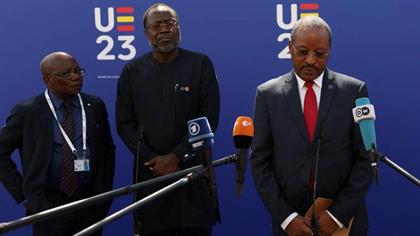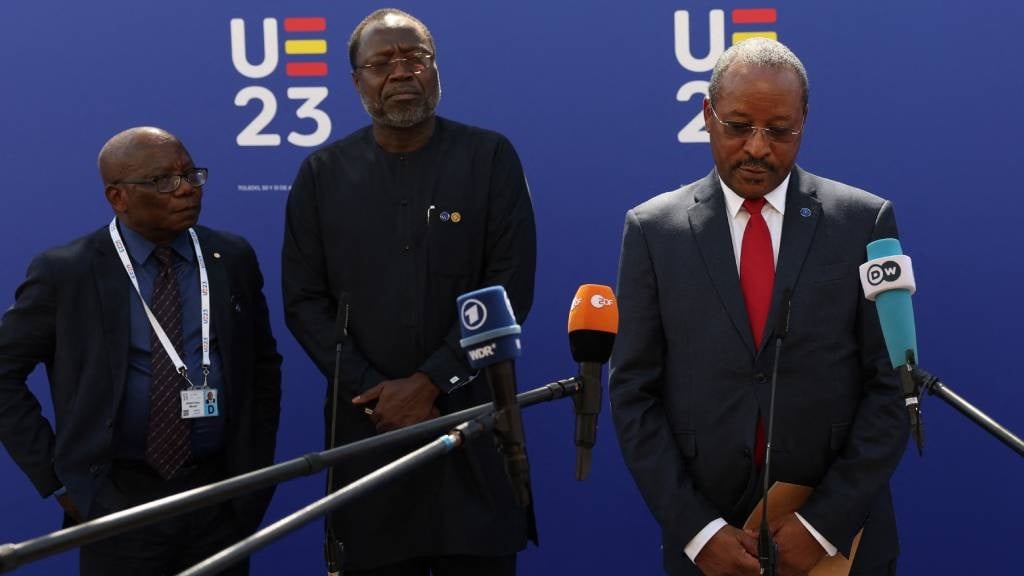- West African climate change experts pin their hopes on a successful global stocktake at COP28 to draw attention to the region’s specific needs.
- Rising sea levels and coastal erosion were identified as critical climate change challenges for West Africa by the World Bank.
- Coups and unconstitutional changes of governments in parts of West Africa result in a lack of political will to fight climate change in West Africa.
A successful political conclusion of the Global Stocktake at COP28 will allow West Africa to construct and grow climate solutions that advance intersecting social, economic, and political interests, such as eliminating causes of forced migration and scaling sustainable development.
This was said by a consortium of 22 regional climate change experts in a letter to world leaders in an attempt to bring focus to their region during the Global Stocktake session of COP28 later this week.
The global stocktake is a procedure that allows governments and stakeholders to assess where they are and are not making progress toward fulfilling the goals of the Paris Climate Change Agreement.
Climate change is already hurting agriculture and coastal commercial activity in West Africa.
Rising sea levels and coastal erosion have been identified by the World Bank as important concerns that will increase the exposure and vulnerability of local populations and assets throughout the region.
READ | Ahead of COP28, Horn of Africa floods are a reminder of Africa’s climate change crises
That’s why the West Africans want “world leaders to continuously incorporate the unique risks and opportunities in the West African region in this decision-making process and to elevate the voices of those most vulnerable to devastating climate impacts. An adequate response to climate change must not be a one-size-fits-all solution.”
On top of the regional considerations to be made, the experts said, was adaptation, which was necessary because many of West Africa’s natural resources were not limited to individual countries.
That’s why, when developing national climate policies, including National Adaptation Plans (NAPs) and Nationally Determined Contributions (NDCs), transboundary resources must be considered.
Across the continent, funding is a huge challenge.
Going into COP28, the West Africans want to see “policy needs to ensure finance is directed to the areas where the solutions are being developed and that the requirements to access climate finance are simplified”, they said in their letter shared with News24.
The experts argued that a top-down approach would not solve the climate change crisis; instead: “The Just Transition needs to be viewed from the perspective of local livelihoods.”
West Africa is the coup centre of Africa, prone to unconstitutional changes of government.
As such, the experts said that in most cases, political situations were limiting the implementation of climate change initiatives.
“Current political uncertainties in West Africa are also important factors that exacerbate the impact of climate change,” they said, adding that civil society should play a bigger role, particularly in capacity building where politics fails.
Despite the call by West African lobbyists, Africa is bringing one document and one vision to the COP28 meeting slated for 30 November to 12 December 2023 at the Expo City in Dubai.
Africa would want to see the developed world delivering on climate financing, sealing agreements on upscaling carbon markets and a win-win approach on phasing out fossil fuels.
The News24 Africa Desk is supported by the Hanns Seidel Foundation. The stories produced through the Africa Desk and the opinions and statements that may be contained herein do not reflect those of the Hanns Seidel Foundation.


